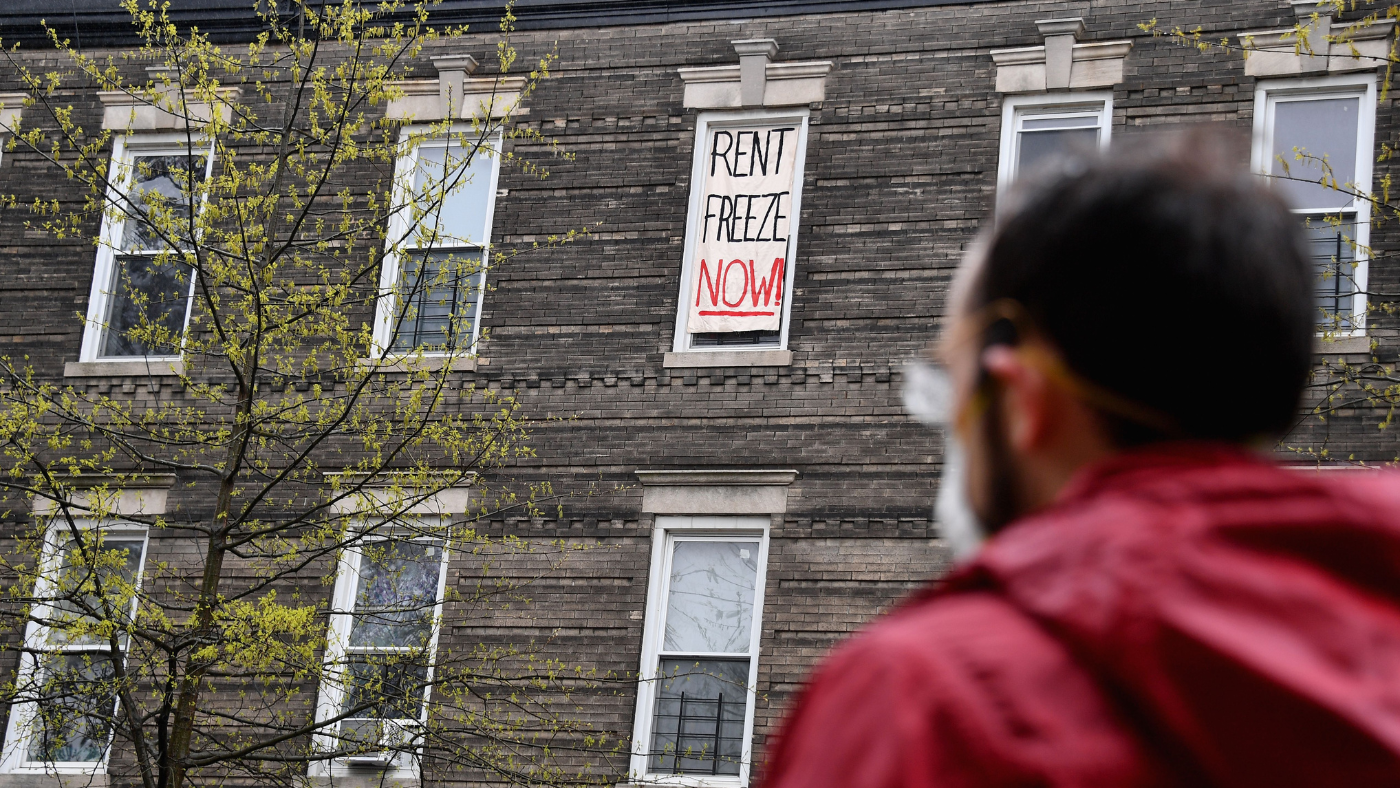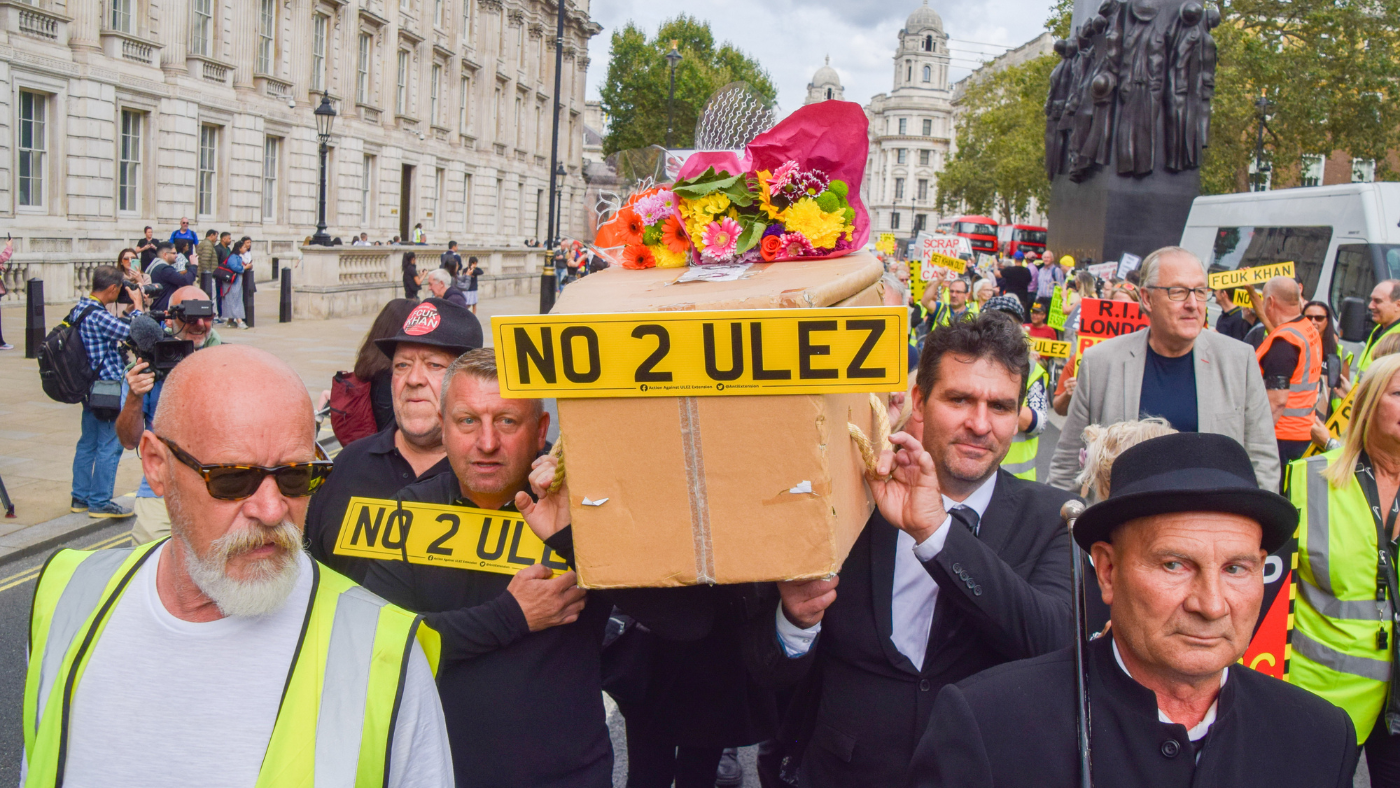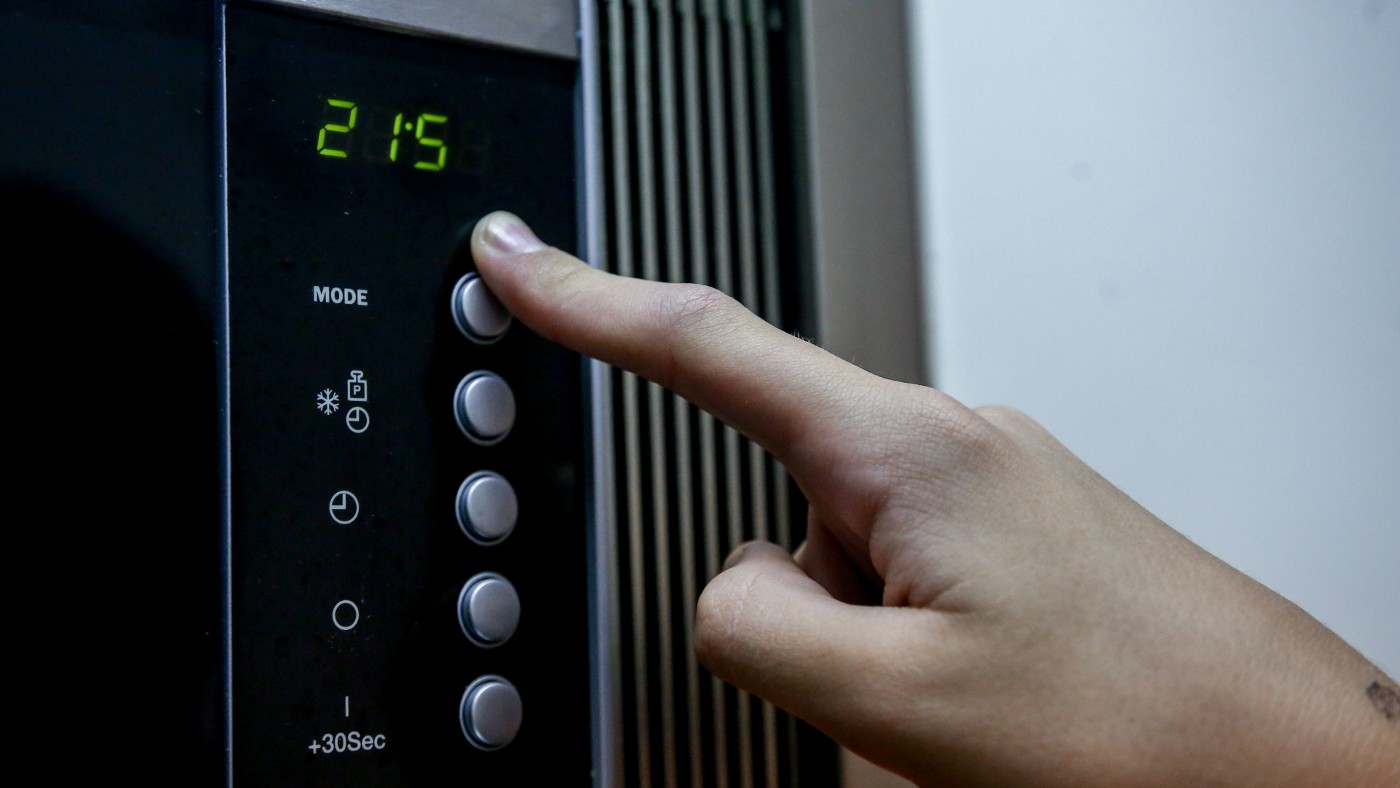The pros and cons of rent freezes
Proponents say rent controls provide stability for tenants, but critics claim they won’t fix the housing crisis

A free daily email with the biggest news stories of the day – and the best features from TheWeek.com
You are now subscribed
Your newsletter sign-up was successful
Councillors in Bristol are prepared to lobby the government for permission to introduce rent controls across the city if a local commission recommends the measure.
“Things are so bad now in Bristol that we need to take action,” councillor Tom Renhard told ITV. According to the council’s data, private rents in the city have more than doubled in the past ten years, with spiralling costs pushing people out of Bristol.
Nicola Sturgeon last year became the first British politician to impose controls on private rents since Margaret Thatcher deregulated the sector in 1988, said left-wing news site Novara Media.
The Week
Escape your echo chamber. Get the facts behind the news, plus analysis from multiple perspectives.

Sign up for The Week's Free Newsletters
From our morning news briefing to a weekly Good News Newsletter, get the best of The Week delivered directly to your inbox.
From our morning news briefing to a weekly Good News Newsletter, get the best of The Week delivered directly to your inbox.
Holyrood rushed through legislation in September to freeze rents for residential tenants and ban evictions in Scotland until at least March 2023, in an effort to minimise the impact of the cost-of-living crisis on individual households.
In December, an agreement reached between the Scottish government and the Scottish Federation of Housing Associations brought an end to those restrictions, with housing associations instead committing to keep rent “affordable” from 1 April, said Inside Housing.
As politicians “are weighing drastic action to rein in Britain’s runaway housing market”, Novara Media continued, private sector rent controls “could soon become a reality”.
1. Pro: stops overinflated rents
With property demand high and supply low, some renters are being pushed to the brink of affordability to secure a home. “It has become commonplace for prospective tenants to be asked how much rent they are willing to pay” for a privately rented home, said The Guardian, “with the property going to the highest bidder”.
A free daily email with the biggest news stories of the day – and the best features from TheWeek.com
Freezing rents would prevent private landlords from overinflating property rates. Housing associations had previously been able to raise rents by the rate of consumer inflation plus 1%, but due to current inflation levels, Chancellor Jeremy Hunt announced in November that social rents would be capped at a 7% increase for 2023/24.
2. Con: doesn’t fix the housing crisis
Writing in The House magazine in October, the Conservative MP for Harrow East, Bob Blackman, warned that “the trickle effect” of a rent freeze “could be sinister” for landlords. He said that the UK’s “very ambitious target” to build 300,000 more homes annually to help alleviate the housing crisis “would become impossible”, as property companies would find it “very difficult” to raise enough money to build more houses.
Jerusalem Demsas, policy reporter at Vox in the US, agreed that rent controls fail to fix “the core issue of why housing is so expensive to begin with: lack of supply”. Controls, like a rent freeze, should “be understood as a remedy for displacement, rather than a solution to the spiralling cost of housing”.
3. Pro: predictable rent costs
Freezing rents enables households to better manage long-term budgets and savings. “Tenants are the big winners when it comes to rent controls,” said The Big Issue.
In Ontario, Canada, the magazine reported, officials froze rents in 2021 and capped them below inflation for 2023. “Our government is providing stability and predictability to the vast majority of tenants”, said Steve Clark, the province’s minister of municipal affairs and housing.
4. Con: loss for landlords
For landlords whose incomes rely on the rents of a property, a rent freeze could “make the cost of living crisis more of a threat when faced with feeding their families or heating the home”, said Blackman in The House. With mortgage rates rising, landlords could be “squeezed even further”, said The Big Issue, “making rent controls even less likely”.
This “financial hardship” may then incentivise landlords to sell their rental properties, displacing tenants as a result of introducing a rent freeze, said Blackman. That is “a troubling prospect in a country whose housing stock was eviscerated by the right to buy”, said Novara Media.
5. Pro: protect most vulnerable households
Without some form of rent control, “the losers are people with less money”, said Vox’s Demsas: “those who cannot afford increases in rent are forced out of their neighbourhoods, and people who can afford them get to stay or move in”.
Rent restrictions protect low-income tenants from “price rises that threaten to make their lives impossible”, said The Guardian. An Ipsos Mori survey of 2,161 adults conducted last year found that 72% of Brits would support the introduction of rent restrictions. However, just over two-thirds said they were not confident that the UK would build enough new, affordable homes in the coming years.
6. Con: potential lack of maintenance
Landlords may struggle to cover the costs of keeping up with repairs and improvements to properties as a result of a loss of income, said Blackman, or be less incentivised to do so.
And as “the government strives for its net-zero goals”, freezing rents could reduce landlords’ “incentive to accelerate this transition”, given the high cost of “going green”.
Julia O'Driscoll is the engagement editor. She covers UK and world news, as well as writing lifestyle and travel features. She regularly appears on “The Week Unwrapped” podcast, and hosted The Week's short-form documentary podcast, “The Overview”. Julia was previously the content and social media editor at sustainability consultancy Eco-Age, where she interviewed prominent voices in sustainable fashion and climate movements. She has a master's in liberal arts from Bristol University, and spent a year studying at Charles University in Prague.
-
 Local elections 2026: where are they and who is expected to win?
Local elections 2026: where are they and who is expected to win?The Explainer Labour is braced for heavy losses and U-turn on postponing some council elections hasn’t helped the party’s prospects
-
 6 of the world’s most accessible destinations
6 of the world’s most accessible destinationsThe Week Recommends Experience all of Berlin, Singapore and Sydney
-
 How the FCC’s ‘equal time’ rule works
How the FCC’s ‘equal time’ rule worksIn the Spotlight The law is at the heart of the Colbert-CBS conflict
-
 The end of leasehold flats
The end of leasehold flatsThe Explainer Government reforms will give homeowners greater control under a move to the commonhold system
-
 Why baby boomers and retirees are ditching Florida for Appalachia
Why baby boomers and retirees are ditching Florida for AppalachiaThe Explainer The shift is causing a population spike in many rural Appalachian communities
-
 The pros and cons of Ulez
The pros and cons of UlezPros and Cons Lower levels of air pollution will come at a cost to some motorists in this bitterly divisive issue
-
 The pros and cons of new-builds
The pros and cons of new-buildsPros and Cons More options for first-time buyers and lower bills are offset by ‘new-build premium’ and the chance of delays
-
 Pros and cons of location sharing
Pros and cons of location sharingPros and Cons Safety benefits for parents and friends must be weighed against privacy concerns and malicious misuse
-
 Pros and cons of microwaves
Pros and cons of microwavesPros and Cons The kitchen gadgets are convenient but one chef called them ‘world’s worst invention’
-
 How the Grenfell tragedy changed the UK
How the Grenfell tragedy changed the UKfeature Six years on since the government vowed to ‘learn lessons’ has sufficient progress been made?
-
 Pros and cons of building on the green belt
Pros and cons of building on the green beltPros and Cons More housing and lower house prices must be weighed against urban sprawl and conservation concerns